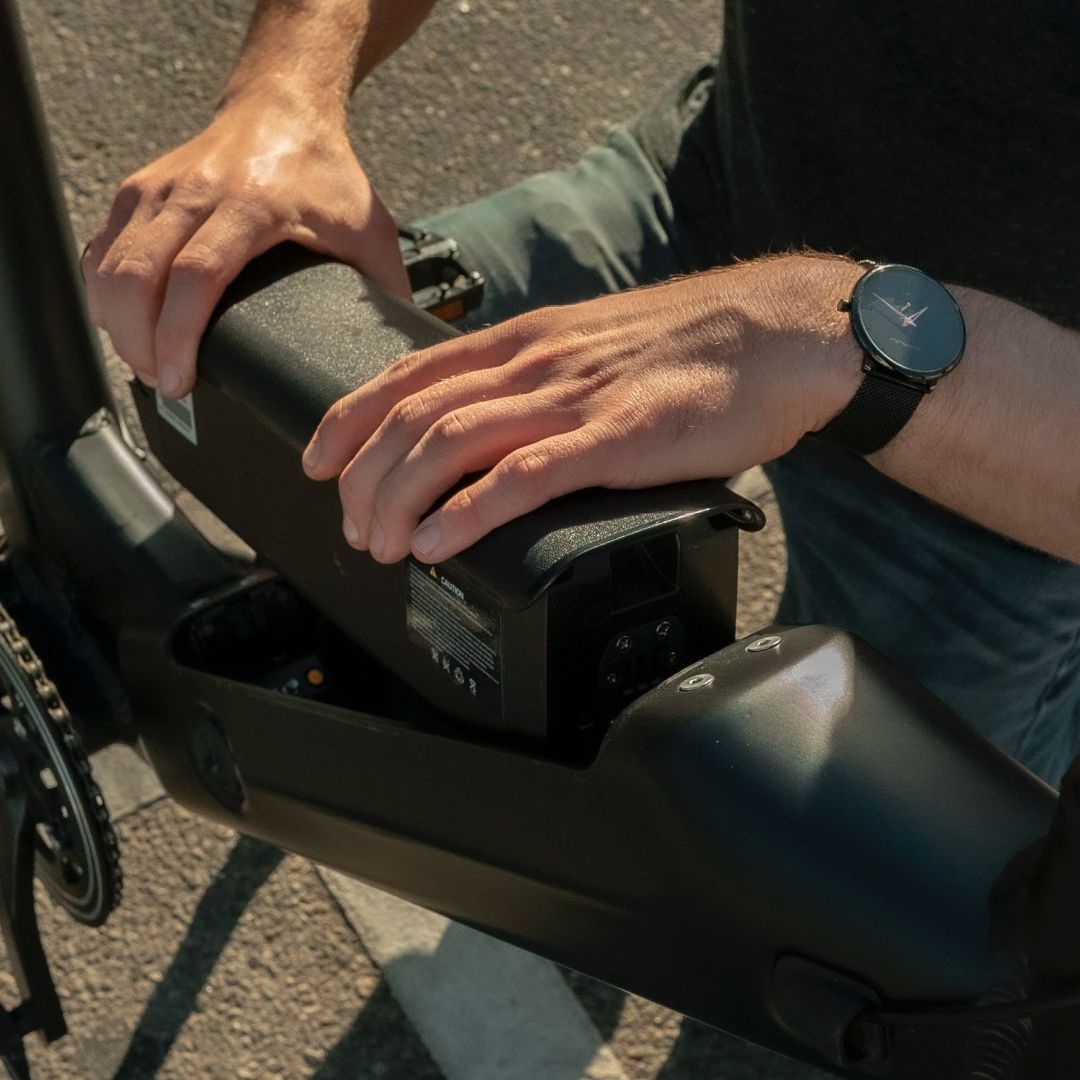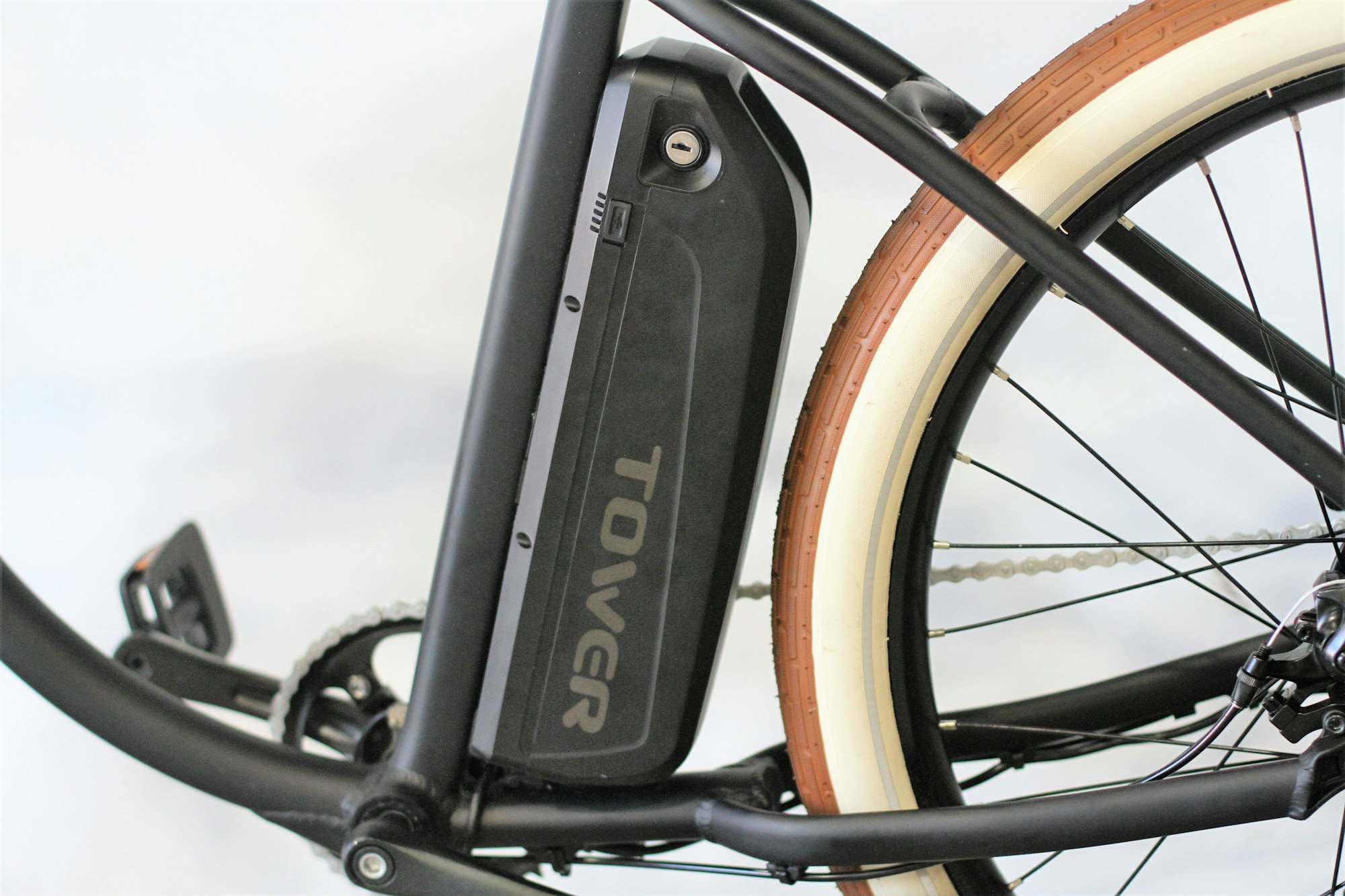But how much can you save by riding an electric bike?
We’ve pulled together everything you need to know about the financial benefits of e-bikes.
More affordable electric bike insurance
While insurance for your electric bike isn't mandatory, it's an incredibly wise choice. With bike thefts escalating, protecting yourself against theft and accidents is not just about peace of mind - it’s about being financially savvy.
Replacing a stolen ebike can be hefty, and insurance can shield you from these unexpected expenses.
Long-term financial benefits
Considering the long haul, the cost savings with e-bike insurance are even more apparent. Not only are you protecting your investment in your electric bike from theft and damage, but you're also doing so at a fraction of the cost of insuring a car.
Over time, these savings accumulate, adding another layer to the financial benefits of choosing an electric bike as your primary mode of transportation. It’s not just about the here and now - it's about intelligent, cost-effective choices that benefit you in the long term.
E-bikes vs public transport: What’s the price difference?
When managing daily commute costs, e-bikes are a notably more economical option than public transport. Regular expenses on trains, buses, and tubes, particularly for single journeys, quickly increase, making public transport a significant outlay for many commuters.
The cost-effectiveness of e-bikes becomes even more pronounced when you consider the per-trip or monthly travel expenses associated with public transport.
Eliminating on-road expenses with e-bikes
One of the standout advantages of riding an e-bike is the virtual elimination of on-road costs. Unlike public transport, where each journey incurs a charge, e-bikes offer the freedom of travel without the continual expense.
The initial investment in an e-bike is offset by the savings accumulated over time, as there are no fares to pay each time you hit the road. This aspect makes e-bikes cheaper than public transport and a more convenient and flexible mode of transportation.
The convenience and savings of e-biking
Opting for an e-bike over public transport isn't just a win for your wallet - it’s a win for your lifestyle. You’re not just saving money - you’re gaining the convenience of travelling on your own schedule, avoiding crowded public transport, and contributing to a healthier lifestyle.
The operating costs of an e-bike – primarily charging the battery – are minimal compared to the regular and often increasing fares of public transport systems. This makes e-bikes an attractive long-term investment for your financial and personal well-being.
What are the 5 main benefits of off-peak charging for e-bikes?
Off-peak charging is an excellent boost to the environmental benefits of electric bikes, and to top it all off - it offers considerable economic advantages. While charging an e-bike is already a low-cost affair (typically taking just a few hours), shifting this to off-peak times can further reduce electricity costs.
This practice is part of a broader approach to energy consumption that can lead to significant savings in your household. Let’s explore the benefits in more detail:
- Charging during off-peak hours often comes with reduced electricity rates, decreasing the cost of setting up your e-bike.
- Off-peak charging often coincides when the energy grid is under less stress, leading to more efficient use of resources and a smaller carbon footprint.
- Regular off-peak charging can significantly lower the annual cost of maintaining an e-bike, making it an even more cost-effective mode of transportation.
- Off-peak charging, when applied to other household appliances, can contribute to broader energy savings within the home.
- Charging during off-peak hours often means using energy when more renewable sources feed the grid, supporting sustainable energy initiatives.
Can e-bikes save money on parking expenses?
Riding an e-bike in urban settings, particularly in bustling cities like London, presents a significant advantage in saving on parking expenses and traffic congestion charges.
While car owners grapple with the often hefty fees for parking spaces – a near-inevitability in major city centres – e-bike riders enjoy a notable exemption from these costs. This absence of parking fees is a tangible financial benefit, especially for daily commuters and city explorers using e-bikes.
Remember to secure your e-bike safely with a reliable electric bike lock.
A stark contrast
The cost contrast between e-bikes and cars becomes stark when considering the Congestion Charge in areas like central London. For car users, a single trip can incur charges up to £20, not to mention the regular parking fees.
On the other hand, e-bike riders can navigate these areas without incurring additional charges. The convenience of finding a secure spot to lock up the e-bike adds to its appeal, particularly in congested urban areas where parking spaces are at a premium and often come with a substantial fee.
What makes e-bike ownership more economical than owning a car?
E-bike ownership is more economical than owning a car, especially considering long-term costs. The absence of road tax, lower insurance rates, minimal fuel costs, and the reduced need for costly maintenance make e-bikes a financially savvy option.
Additionally, avoiding parking fees and congestion charges further enhances the savings, making e-bikes eco-friendly and a cost-effective mode of transportation.
Below is a table featuring all the juicy details one might need when comparing the two:
What about electric cars?
Even when juxtaposed with electric cars, e-bikes appear ahead regarding economic efficiency. This survey [PDF] even shows e-bikes being ahead of electric vehicles in popularity.
One of the main reasons for this growth is that charging an e-bike battery incurs a fraction of the expense associated with setting up an electric car.
The smaller battery size and more efficient use of power in e-bikes mean that the electricity costs are considerably less, making them a more budget-friendly option for daily travel.
Are e-bikes a cost-effective alternative to traditional bikes?
E-bikes may have a slightly higher initial cost than traditional bikes, but some models are competitively priced. The difference is often minor, considering the additional benefits e-bikes provide.
Maintenance and running costs
Maintenance costs for e-bikes are comparable to traditional bikes, with the main difference being the battery and electrical components of the e-bike. However, these don't significantly increase overall upkeep expenses.
Efficiency and cost per mile
On average, e-bikes cost only 1-3 pence more per mile than traditional bikes. This slight increase is balanced by the greater efficiency and convenience of pedal-assistance, offering value for money over the long term.
A faster and more economical commute
The speed of e-bikes compared to traditional cycles makes them even more appealing as an option for commuting. And it’s a no-brainer when comparing the cost of an e-bike with running a car or motorcycle – when it comes to your daily commute, you’re bound to save significantly more money.
Plus, an e-bike aligns well with the green commute initiative, encouraging more environmentally friendly and health-conscious travel choices. By choosing an e-bike, you contribute to reducing environmental impact while also reaping the health benefits of a more active lifestyle.
Laka Electric Bike Insurance...
Get covered for theft, accidental damage, full battery cover, loss and more. Try our 5-star reviewed e-bike insurance. With no excess & travel cover included, it's e-bike insurance, and then some.






